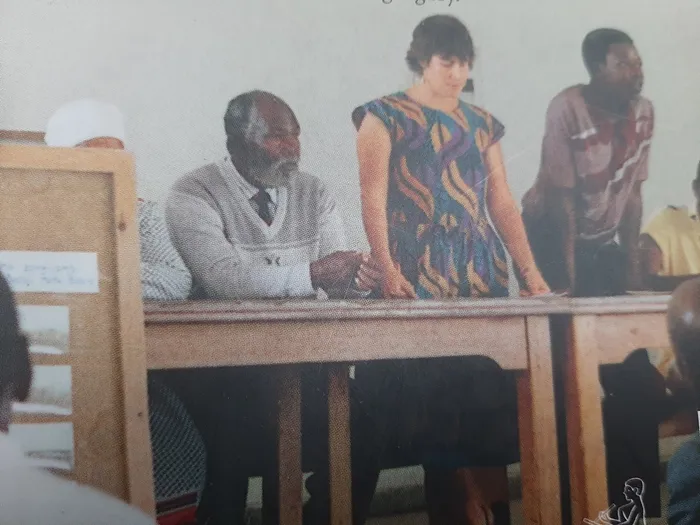Tracing the steps of a ‘gentle activist’

Activist and development worker Clare Stewart at work in northern KZN during the last chapter of her life. Picture: Supplied

Durban - Back when ideology prompted political murders rather than issues of money and patronage, development worker Clare Stewart lost her life in the far north of KZN.
Twenty-nine years later, her siblings have testified at the Truth and Reconciliation Commission, her orphaned children now adults and her execution unresolved, British journalist Christopher Clark has traced her footsteps and her life. He has packaged his account in his recently published book Clare: The killing of a gentle activist.

Stewart’s aim had been to beef up the quality of cattle herds around Manguzi to improve the economy of local small-scale farmers. She’s referred to having not brought politics into her work and being well-liked by a cross-section of society.
She had an ANC affiliation in a place and time when the province was almost on the brink of civil war. The ANC and the IFP were at deadly loggerheads. Security police activity was also often in the mix.

Clark, who has immersed himself in South Africa, having moved here and since spent much of his time in Cape Town, first heard about Stewart from his ex-wife’s parents “who had lived in Manguzi with Clare among a small set of progressive whites in the late ’80s and early ’90s”.
“I was immediately fascinated by Steve and Vanda's colourful tales of what was, to me, a far-off yet pivotal time and place in South Africa's history,” he told The Independent on Saturday.
“In subsequent years, I went on to do a lot of journalistic work about more contemporary political violence in KwaZulu-Natal and began to feel that there was a clear link between what was happening now and the province's long history of violence, of which Clare was but one of thousands of victims.
“With this in mind, I also came to feel that Clare's death had a particular symbolism in that it occurred so close to the end of apartheid, effectively straddling these two different eras and their respective iterations.”
Clark said that as he learnt more about Stewart, he also found a number of parallels between her history and world view and his own.
“Furthermore, at a time when I was beginning to question my own purpose, I was increasingly drawn to Clare's seemingly irrepressible sense of determination and conviction as she sought to actively live out her admirable principles even in the face of great risk and uncertainty.”
She is buried at the Mariannhill Monastery.
Clark sometimes feels that the more he delves into the South African story, the less he understands about the country.
“Or perhaps I have just come to better see how much I do not and probably never will understand about it. But there is, in a way, a certain liberation to be found in accepting that and even embracing it. This is something that I actively and openly try to explore in the book as I scrutinise myself, my position and my fallibility in relation to both Clare's story and South Africa more widely.”
He said that researching Stewart’s story and spending a significant amount of time in the province showed him how much of KZN’s history remains opaque or hidden beneath the surface.
“It was often hard for me to know who to trust and I found that there is still a pervasive culture of silence in many small towns like Manguzi.
“Without fully excavating this history and creating a solid foundation of truth and accountability, it is hard for me to see how the province will ever fully heal. The same can certainly be said for South Africa at large.”
Clark plans to write a collection of non-fiction narratives about small backwater towns all across South Africa.
“Though routinely neglected, (they) find themselves at the coalface of some of the most pivotal issues facing the country while also highlighting the increasingly contested intersection of its past and present.”
For KZN’s representation in the project, two such towns and the topics around them are in his sites.
“Richmond and political killings; Melmoth and land restitution.”
- Clare: The Gentle Activist (Tafelberg) by Christopher Clark retails for R320.
The Independent on Saturday
Related Topics: